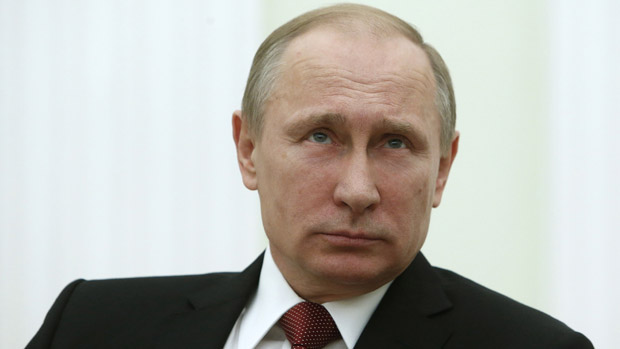Russian agents accused of 'harassing' US officials
Diplomats claim their homes have been broken into and that they and relatives have been followed

A free daily email with the biggest news stories of the day – and the best features from TheWeek.com
You are now subscribed
Your newsletter sign-up was successful
The US has accused Russia of using its intelligence and security services to harass and intimidate diplomats, embassy staff and their families in Moscow and other European capitals.
Officials say the campaign began around two years ago, coinciding with the introduction of sanctions against Russia following the crisis in Ukraine.
Russian agents have allegedly used a range of techniques, from following diplomats and their relatives and turning up uninvited to social events, to breaking into their homes and rearranging the furniture.
The Week
Escape your echo chamber. Get the facts behind the news, plus analysis from multiple perspectives.

Sign up for The Week's Free Newsletters
From our morning news briefing to a weekly Good News Newsletter, get the best of The Week delivered directly to your inbox.
From our morning news briefing to a weekly Good News Newsletter, get the best of The Week delivered directly to your inbox.
"They are hitting American diplomats literally where they live," said the US State Department's press secretary, John Kirby.
Michael McFaul, the former US ambassador to Russia, told the Washington Post his family was routinely followed and that Russian agents wanted him to know he was being watched.
"It was part of a way to put pressure on government officials who were trying to do their reporting jobs," he said.
"It definitely escalated when I was there. After the invasion of Ukraine, it got much, much worse. We were feeling embattled out there in the embassy."
A free daily email with the biggest news stories of the day – and the best features from TheWeek.com
US Secretary of State John Kerry has spoken to Russian President Vladimir Putin to insist the harassment stops.
A spokesman for the Russian Embassy in Washington says they are acting as a result of "US provocations and mistreatment of Russian diplomats in the United States".
-
 How to Get to Heaven from Belfast: a ‘highly entertaining ride’
How to Get to Heaven from Belfast: a ‘highly entertaining ride’The Week Recommends Mystery-comedy from the creator of Derry Girls should be ‘your new binge-watch’
-
 The 8 best TV shows of the 1960s
The 8 best TV shows of the 1960sThe standout shows of this decade take viewers from outer space to the Wild West
-
 Microdramas are booming
Microdramas are boomingUnder the radar Scroll to watch a whole movie
-
 Putin’s shadow war
Putin’s shadow warFeature The Kremlin is waging a campaign of sabotage and subversion against Ukraine’s allies in the West
-
 Alexei Navalny and Russia’s history of poisonings
Alexei Navalny and Russia’s history of poisoningsThe Explainer ‘Precise’ and ‘deniable’, the Kremlin’s use of poison to silence critics has become a ’geopolitical signature flourish’
-
 What happens now that the US-Russia nuclear treaty is expiring?
What happens now that the US-Russia nuclear treaty is expiring?TODAY’S BIG QUESTION Weapons experts worry that the end of the New START treaty marks the beginning of a 21st-century atomic arms race
-
 Epstein files topple law CEO, roil UK government
Epstein files topple law CEO, roil UK governmentSpeed Read Peter Mandelson, Britain’s former ambassador to the US, is caught up in the scandal
-
 Iran and US prepare to meet after skirmishes
Iran and US prepare to meet after skirmishesSpeed Read The incident comes amid heightened tensions in the Middle East
-
 Israel retrieves final hostage’s body from Gaza
Israel retrieves final hostage’s body from GazaSpeed Read The 24-year-old police officer was killed during the initial Hamas attack
-
 China’s Xi targets top general in growing purge
China’s Xi targets top general in growing purgeSpeed Read Zhang Youxia is being investigated over ‘grave violations’ of the law
-
 Ukraine, US and Russia: do rare trilateral talks mean peace is possible?
Ukraine, US and Russia: do rare trilateral talks mean peace is possible?Rush to meet signals potential agreement but scepticism of Russian motives remain